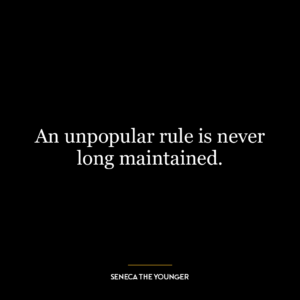A coward calls himself cautious, a miser thrifty.
This quote by Seneca the Younger, “A coward calls himself cautious, a miser thrifty,” essentially underscores the human tendency to rationalize or justify negative traits or behaviors by dressing them up in more palatable terms. It highlights our innate ability to deceive ourselves and others by reframing our weaknesses as strengths.
In the first part of the quote, “A coward calls himself cautious,” Seneca is indicating that a person who is generally afraid to take risks or face challenges might label themselves as ‘cautious.’ While caution is a virtue that can prevent unnecessary harm or loss, excessive caution that stems from fear can limit growth, opportunities, and experiences.
The second part, “A miser thrifty,” implies that a person who is stingy or reluctant to spend money, even when necessary, might describe themselves as ‘thrifty.’ Thrift is often seen as a positive trait, associated with wise money management and avoiding wastefulness. However, when it becomes extreme and turns into miserliness, it can lead to deprivation and a lack of generosity.
In today’s world, this quote is highly relevant. For instance, in the corporate world, an indecisive leader might label their indecision as ’deliberation’ or ‘being thoughtful.’ However, this could lead to missed opportunities or slow progress. On a personal level, someone might justify their reluctance to step out of their comfort zone as ‘being content.’ While contentment is a valuable trait, it could also be a guise for complacency or fear of change.
In terms of personal development, this quote serves as a reminder to be honest with oneself about one’s weaknesses or negative traits. It encourages us to confront and address these traits rather than masking them with more acceptable labels. Only through such self-awareness and honesty can we truly grow and evolve. It also cautions us to be aware of this tendency in others, to see beyond the surface and understand the true nature of their actions and behaviors.











